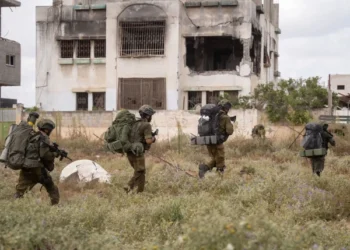Introduction: A Historic Step in Bilateral Engagement
In a significant diplomatic development, Pakistan and the Federated States of Micronesia have officially established formal diplomatic relations. The milestone was achieved in New York, where senior diplomats from both nations signed a joint declaration, signaling the beginning of a new chapter in bilateral cooperation.
The agreement marks the start of formal engagement between Pakistan—a South Asian country with a population exceeding 240 million—and Micronesia, an island nation located in the western Pacific Ocean. This diplomatic move not only broadens Pakistan’s outreach to the Pacific region but also strengthens its position in global forums such as the United Nations.
The Signing Ceremony: Symbol of New Partnership
The joint declaration was signed at the Pakistan Mission to the United Nations by Ambassador Asim Iftikhar Ahmed, Pakistan’s Permanent Representative to the UN, and Ambassador Jim S. Lipway, Micronesia’s envoy to the UN. The ceremony was attended by senior diplomats from both countries, underscoring the importance of the event.
Pakistan’s Deputy Permanent Representative, Ambassador Usman Jadoon, was also present, adding weight to the occasion. Both parties expressed optimism that the establishment of diplomatic relations would pave the way for enhanced cooperation in areas such as climate change, human resource development, and the promotion of global peace.
A Special Timing: Coinciding with Pakistan’s Independence Day
Ambassador Asim Iftikhar highlighted that the agreement came on a symbolic and meaningful date—Pakistan’s Independence Day, celebrated on August 14.
“The establishment of these relations on Pakistan’s Independence Day is a welcome step. It will open many new doors of mutual cooperation,” he stated, adding that Pakistan was eager to work closely with Micronesia on shared priorities.
This timing gives the agreement an added layer of symbolic value, turning it into not just a diplomatic achievement but also a moment of celebration for the Pakistani people.
Pakistan Becomes the 100th Country to Establish Ties with Micronesia
Ambassador Asim also revealed that Pakistan is the 100th country to formalize diplomatic relations with Micronesia. This milestone for Micronesia reflects the Pacific nation’s growing integration into the global diplomatic network.
For Pakistan, it represents an opportunity to expand its diplomatic footprint into a geographically strategic region of the Pacific that has increasing importance in climate diplomacy, maritime affairs, and sustainable development.
Micronesia’s Perspective: A Proud Moment for Friendship
Micronesia’s Ambassador Jim S. Lipway warmly welcomed the new diplomatic partnership.
“It is a matter of pride for me to embark on this journey of friendship with Pakistan,” he said. He also thanked Pakistan for its support at the United Nations, expressing a desire to see the relationship deepen in the coming years.
Ambassador Lipway’s remarks underscore Micronesia’s appreciation for Pakistan’s role in multilateral forums and hint at shared values in global peacekeeping and cooperation on pressing international challenges.
Bilateral Discussions: Setting the Stage for Future Cooperation
Before the formal signing, both ambassadors engaged in discussions about possible areas of bilateral collaboration and partnership at the UN. Topics of mutual interest likely included climate change adaptation, trade, educational exchange, and technical assistance.
Given Micronesia’s vulnerability to rising sea levels and Pakistan’s recent experiences with devastating floods, climate resilience is expected to be a central pillar of their cooperation. Both nations share a strong interest in advocating for climate justice and increased funding for adaptation measures at global platforms.
Micronesia: A Snapshot of the Pacific Island Nation
The Federated States of Micronesia (FSM) is an island country spread across more than 600 islands in the western Pacific Ocean. With a population of approximately 115,000, it is composed of four states—Yap, Chuuk, Pohnpei, and Kosrae—each with distinct cultures and traditions.
Micronesia’s economy is largely based on subsistence agriculture, fishing, and financial assistance from the United States under the Compact of Free Association. The nation plays an active role in regional organizations like the Pacific Islands Forum (PIF) and is increasingly vocal on environmental and climate issues, given its extreme vulnerability to the effects of global warming and sea-level rise.
Pakistan’s Expanding Diplomatic Outreach
For Pakistan, forging ties with Micronesia aligns with its broader foreign policy objective of engaging with small island developing states (SIDS). These states, despite their small geographic size, hold significant influence in multilateral forums, particularly on climate change negotiations and ocean governance.
Over recent years, Pakistan has actively sought to build relationships with countries in Africa, Latin America, and the Pacific as part of its strategy to diversify diplomatic partnerships and boost cooperation in areas like trade, renewable energy, education, and peacekeeping.
Shared Interests: Climate Change and Sustainable Development
Both Pakistan and Micronesia face the challenges of climate change in starkly different but equally urgent ways. Pakistan, a country that contributes less than 1% to global greenhouse gas emissions, has suffered severe consequences from climate-related disasters—most notably the catastrophic floods of 2022, which affected over 33 million people.
Micronesia, on the other hand, is facing the existential threat of rising sea levels that could potentially submerge large parts of its territory. This common vulnerability gives both nations a shared platform to advocate for stronger global climate action, financial assistance to developing nations, and adherence to the Paris Agreement targets.
Potential Areas of Cooperation
1. Climate Diplomacy
Both nations can work together in international climate negotiations, pushing for stronger commitments from major emitters and increased funding for adaptation in vulnerable nations.
2. Human Resource Development
Pakistan can offer educational scholarships, vocational training programs, and technical expertise to Micronesia, especially in fields like agriculture, health services, and information technology.
3. Peacekeeping Operations
Pakistan has a long history of contributing troops to United Nations peacekeeping missions. Micronesia, as a member of the global community committed to peace, can collaborate with Pakistan in promoting stability and security in conflict-prone regions.
4. Tourism and Cultural Exchange
Although geographically distant, cultural exchange programs can enhance mutual understanding. Pakistan’s diverse landscapes and historical sites could attract Micronesian tourists, while Micronesia’s pristine islands could appeal to adventurous Pakistani travelers.
Symbolism and Strategic Importance
While the establishment of diplomatic ties between Pakistan and Micronesia might seem symbolic at first glance, it carries strategic implications. In a world where global alliances are shifting and small states hold important votes in the UN General Assembly, cultivating friendships across continents is crucial for advancing national interests.
By engaging with Pacific island nations, Pakistan not only strengthens its voice on climate change but also gains potential allies in matters of maritime law, fisheries management, and sustainable ocean economies.
Conclusion: A Partnership Built on Shared Goals
The signing of the joint declaration between Pakistan and Micronesia in New York represents more than just a formal diplomatic step—it is the beginning of a relationship rooted in mutual respect, shared challenges, and aligned aspirations.
From climate change advocacy to cultural exchange and multilateral cooperation, the two countries have ample opportunities to build a partnership that benefits both sides. As Pakistan becomes the 100th country to establish ties with Micronesia, this relationship has the potential to evolve into a meaningful alliance that addresses both nations’ priorities in an increasingly interconnected world.

























